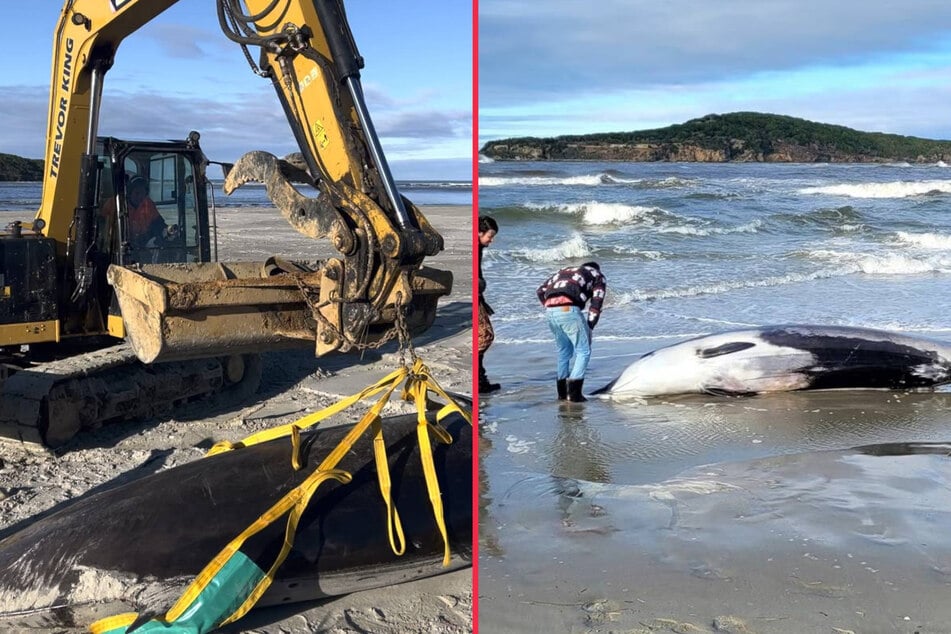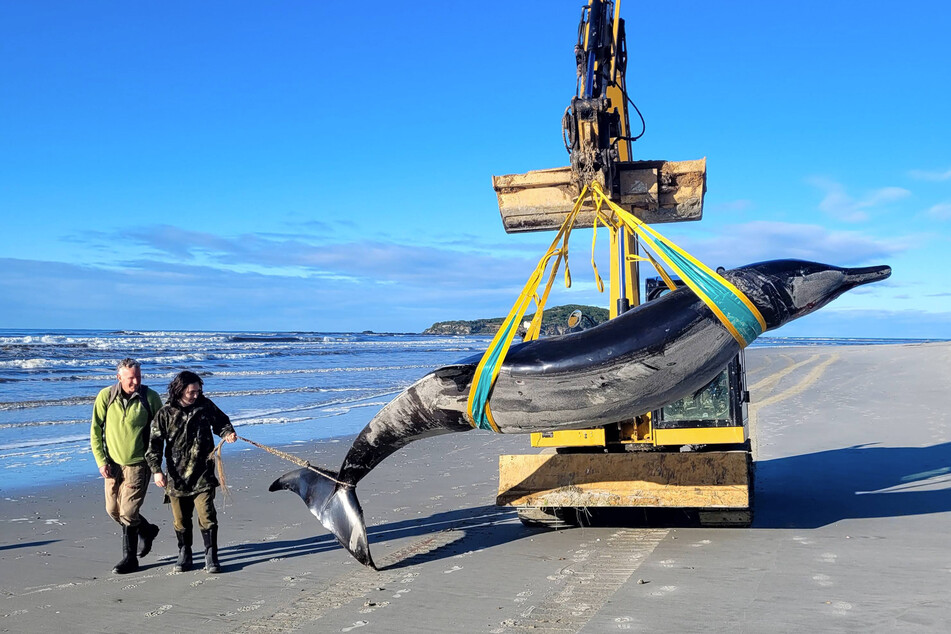Corpse of world's rarest whale washes ashore on New Zealand beach
Taieri Mouth, New Zealand - Officials and scientists in New Zealand have announced that a corpse of the extremely rare and endangered spade-toothed whale may have washed ashore on a south island beach.

The spade-toothed whale is quite possibly one of the rarest still-living species in the world and is widely considered the rarest mammal, with only six samples having been collected since the 1800s.
Near the small fishing village of Taieri Mouth, a 16-foot-long whale was discovered on July 4. Scientists and officials were quickly on the scene to investigate, rapidly confirming that it was indeed a spade-toothed whale.
New Zealand's Department of Conservation (DOC) managed to identify the rare species and, in a press release, described it as "a species so rare next to nothing is known about them."
"Spade-toothed whales are one of the most poorly known large mammalian species of modern times," said DOC Coastal Otago Operations Manager Gabe Davies in the same press release.
"Since the 1800s, only six samples have ever been documented worldwide, and all but one of these was from New Zealand. From a scientific and conservation point of view, this is huge."
Whale species is so rare that it has never been sighted in the wild

Despite increasingly sophisticated tracking and monitoring technology, it is believed that the spade-toothed whale has never been spotted alive in the wild. Instead, since it was first discovered in 1874, it has only been studied via a handful of samples washed up on beaches.
The specimen discovered in New Zealand seems to be a full carcass, opening the door for more in-depth research into the incredibly rare and mysterious species.
Hannah Hendriks, a marine technical adviser for the DOC, told the Associated Press that it is generally believed the whales dive very deep for food but surface so rarely that it has been nigh-on impossible to track them properly.
So far, all that scientists know about the habits of the spade-tooth whale is that they live somewhere in the South Pacific Ocean, deep in the region's oceanic trenches.
"It's very hard to do research on marine mammals if you don’t see them at sea... It’s a bit of a needle in a haystack. You don’t know where to look," explained Hendriks.
"We know very little, practically nothing... This is going to lead to some amazing science and world-first information."
Cover photo: Collage: IMAGO/Jam Press

